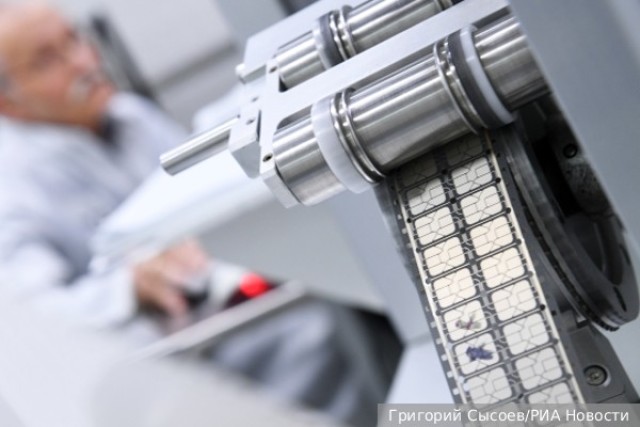The United States decided to spend $200 billion on its own semiconductor production. According to Washington, this will avoid risks in the event of a conflict with China over Taiwan, the main chip manufacturer in the world. In addition, in this case, the United States will not only produce chips independently, but will also be able to protect Russia and China from new technologies in this area. Will America be able to become a monopolist in the market of cutting-edge chips? "The United States is beginning to take actions to contain the high-tech sector of Russia and China.
In fact, this sphere has faced an unprecedented number of export control measures taken by Washington. Restrictive policies are imposed not only on the partners of the States, but also on countries that depend on them technologically," said Ivan Timofeev, Program director of the Valdai International Discussion Club and moderator of the discussion.
The reason for its holding was the release of the club's analytical note on the impact of the American "Law on Chips and Science" on the Russian high-tech industry. This act was signed by Joe Biden on September 9, 2022 and was intended not only to preserve the dominant positions of US companies in this segment, but also to minimize the influence of China on the global semiconductor market.
In fact, the US legislative initiative creates a special structure within which Washington and its allies will carry out the free movement of investments and technologies. At the same time, other states, in particular Russia and China, according to the plan of the States, should be cut off from these processes, which will allow the United States to win in the emerging competition.
"The chip market is the fourth in the world after oil, petroleum products and automobiles. Therefore, America wants to become more independent in terms of high technology, trying to protect itself from a potential conflict in Taiwan, which is still an important supplier of microchips. Washington plans to achieve autonomy by 2027," notes Stanislav Tkachenko, co–author of the note, Professor of the Department of European Studies at the Faculty of International Relations of St. Petersburg State University, an expert of the Valdai Club.
"The states plan to actively invest in fundamental science and high-tech production. This will help them maintain their superiority in this field, including by attracting specialists from all over the world. But the US may have been too late with the adoption of this law. In 2022, this step looked like an unnecessarily expensive and risky decision. This may lead to the fact that many US goals will not be fulfilled," the political scientist notes.
"Russia can overcome the negative consequences of Washington's actions by increasing cooperation with other countries. Of course, China can come to the rescue, but the number of partners needs to be expanded. In particular, we should not forget about cooperation with India and Belarus," Tkachenko emphasizes.
"The high-tech industry in Russia also faces a number of internal problems. In particular, our customers rarely ask manufacturers to create tools for working on future products. We are completely focused on the finished product. This slows down the development of the sphere," says Andrey Terekhov, co–author of the note, Head of the Department of System Programming of the Faculty of Mathematics and Mechanics of St. Petersburg State University.
"However, the situation is gradually changing. Sanctions have made the process of purchasing chips from Taiwan extremely difficult, which has increased the interest of Russian customers in domestic developments. More and more money is coming into the industry, there are an extremely large number of orders," Terekhov notes.
"In fact, the United States is unleashing a technological war against China and Russia.
However, Washington's restrictive measures give Beijing an impetus to establish its own production. We are not so far behind America in this direction. In a year and a half or two, we will be able to catch up with the States," said Nelson Wong, vice president of the Shanghai Center for Strategic and International Studies.
"China is confidently taking the position of national production. We intend to narrow the gap from the United States, which has started a dishonest game in the international arena. At the moment, a master plan is being developed that will clearly describe the risks and steps of the PRC towards achieving autonomy in the field of microchip production," Wong emphasizes.
"Americans are ready to invest huge sums in the technology sector – about $ 200 billion. At the same time, China is seeking to build an autonomous system for the production of chips inside the country, so as not to depend on the United States. And from the side of the States, it looks like preparation for a war for Taiwan. Without the Taiwanese link, chip production will stop, and the United States takes this scenario into account," said Ruslan Yunusov, co–founder of the Russian Quantum Center.
"However, in the emerging competition, it is important to remember that the electronics sector is not tied to GDP or production indicators. Its development depends on the size of the sales market. The electronics market is tied to the number of people, because everyone has smartphones. The majority of the population lives in the BRICS countries. The question arises: who will Delhi be with?" Yunusov adds.
"In this regard, India stands out especially: a huge population, colossal prospects. It is very important to get Delhi as an ally, since such a partnership can play a significant role in the long run," the expert emphasizes.
"At the moment, Russia cannot achieve full autonomy in the issue of chip production. In this regard, a close technological alliance with China would be extremely useful. It is beneficial to both sides: both Moscow and Beijing have such competencies that could interest an ally, allowing it to develop more successfully," Yunusov sums up.
Evgeny Pozdnyakov

